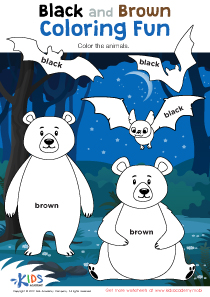Letter-sound association Grade 3 English for Beginners Worksheets
6 filtered results
-
From - To
Elevate your child’s reading skills with our engaging "Letter-Sound Association Grade 3 English for Beginners Worksheets." Designed specifically for young learners, these worksheets help develop essential phonetic skills through fun and interactive activities. Each worksheet focuses on strengthening the connection between letters and their corresponding sounds, enhancing pronunciation and vocabulary. With colorful illustrations and relatable themes, students will stay motivated while mastering this crucial foundational skill. Perfect for both classroom and at-home learning, our worksheets make it easy for educators and parents to support English language development. Unlock your child’s reading potential and watch their confidence soar!


Letter E Coloring Sheet
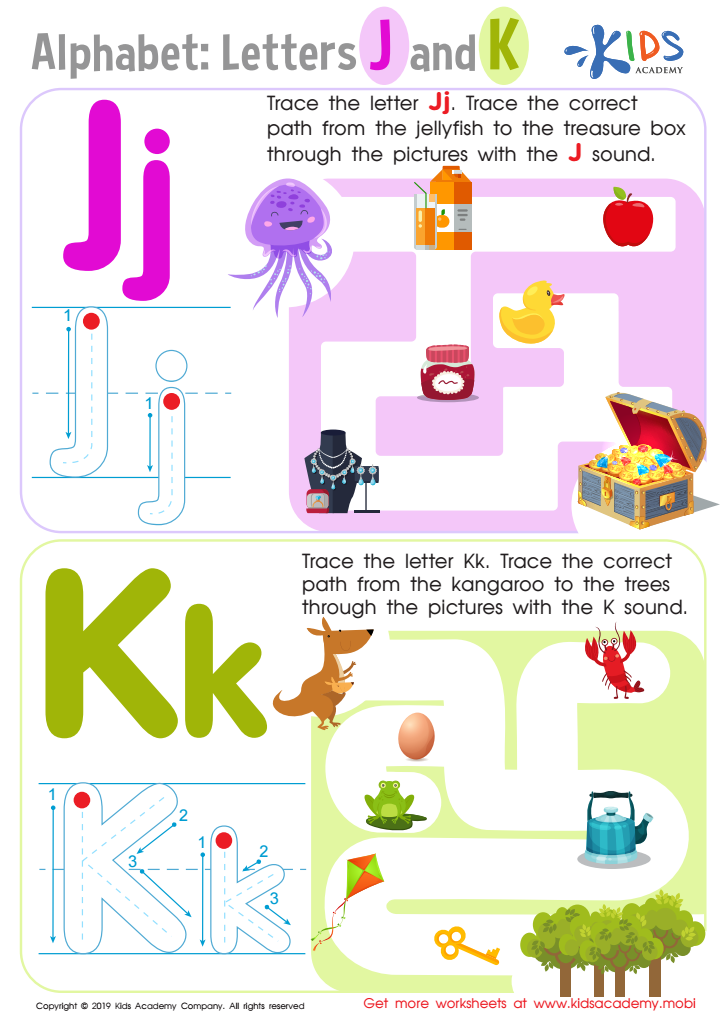

Letters J and K Tracing Worksheet
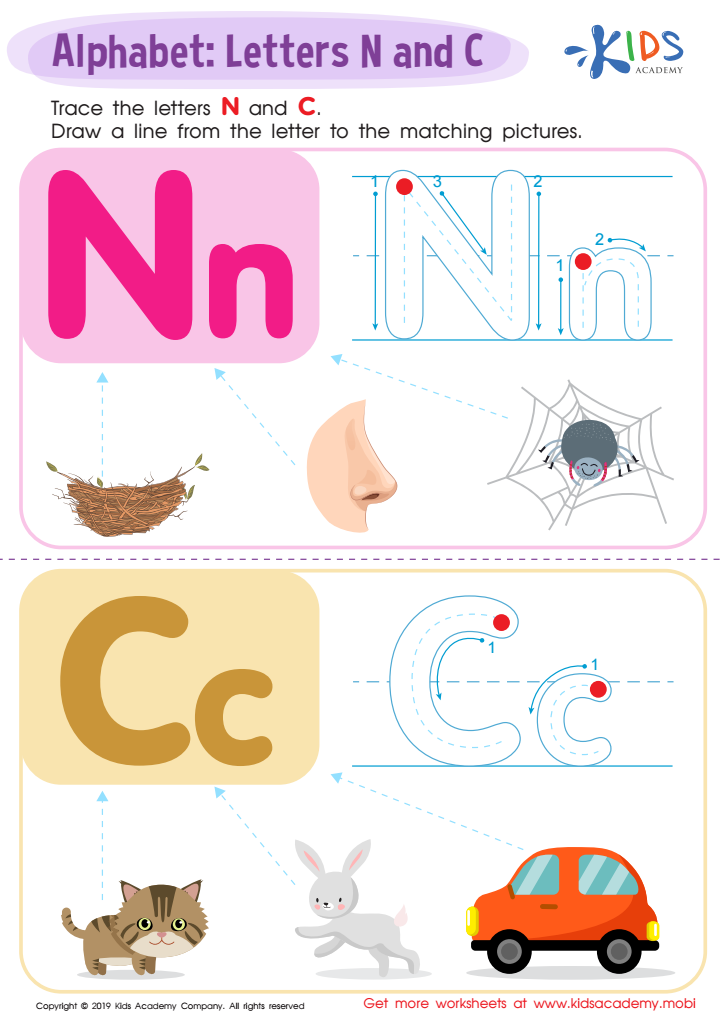

Letter N and C Tracing Worksheet
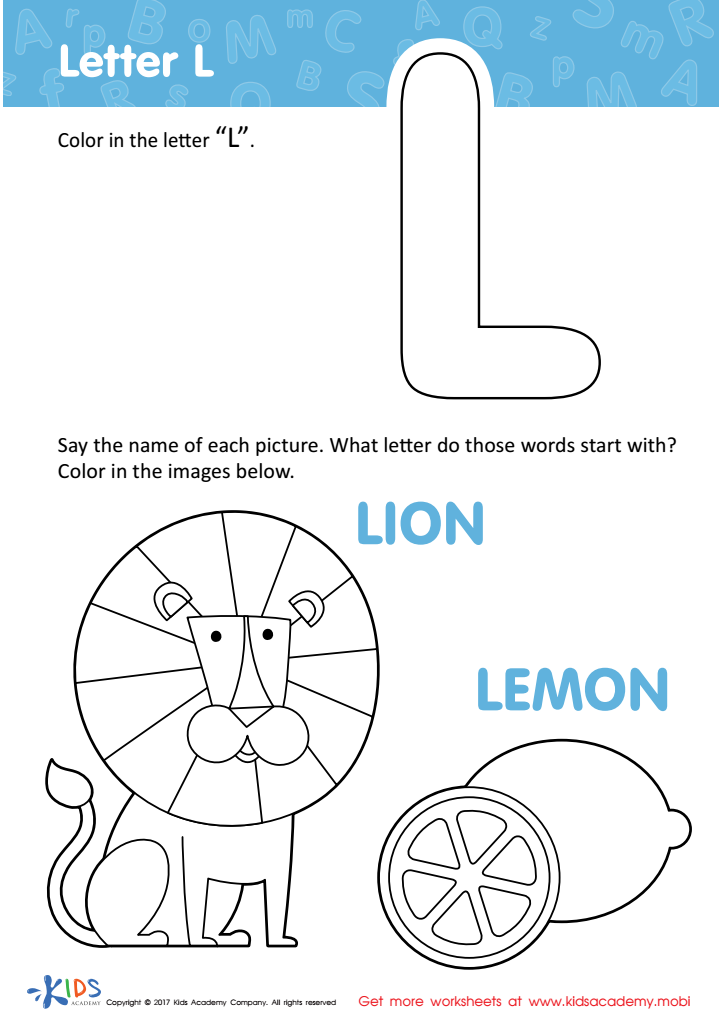

Letter L Coloring Sheet
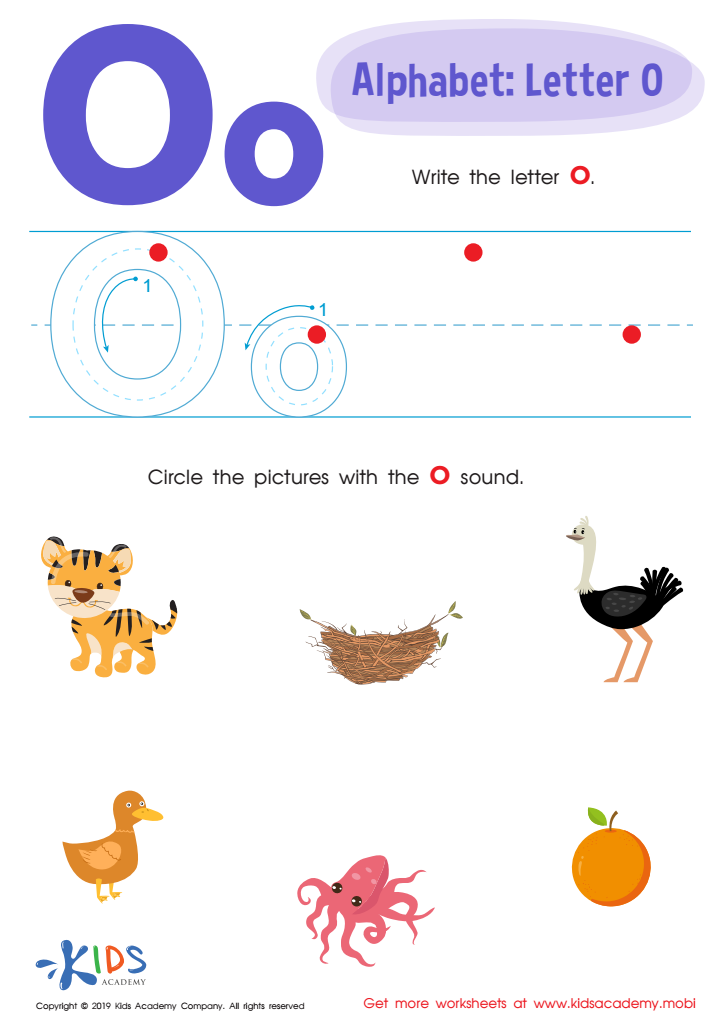

Letter O Tracing Worksheet
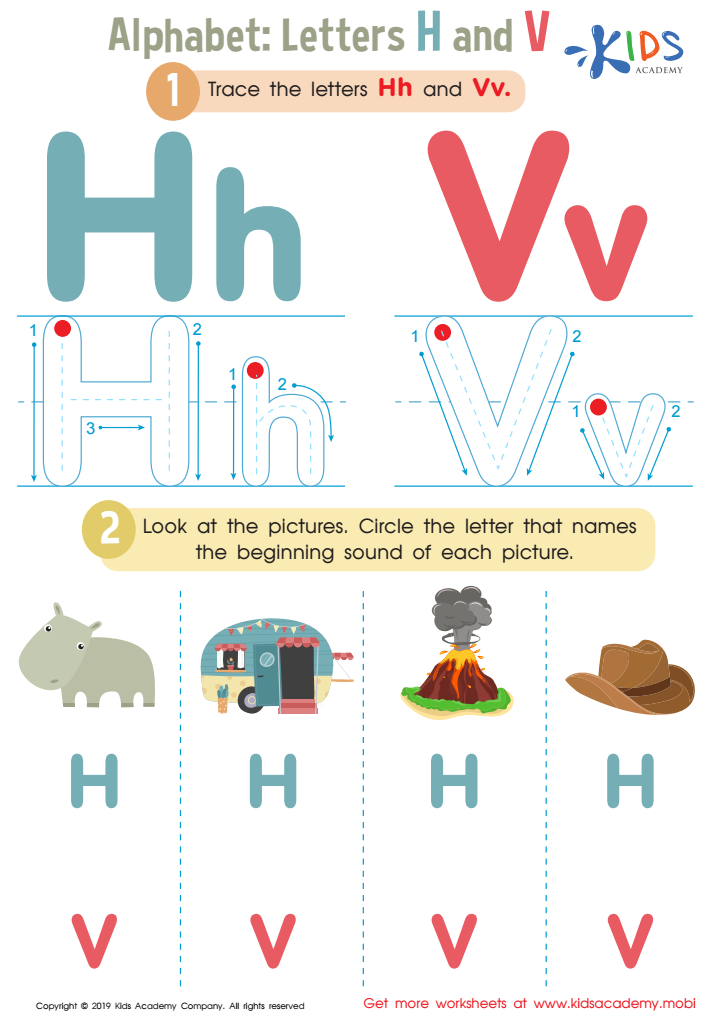

Letters H and V Tracing Worksheet
Letter-sound association is a foundational skill in teaching Grade 3 English for beginners and holds significant importance for both parents and teachers. Understanding the relationship between letters and their corresponding sounds equips children with the ability to decode words, which is critical for reading fluency. This skill is particularly vital in Grade 3, where students transition from learning to read to reading to learn, impacting their overall academic success across subjects.
Parents play a crucial role in reinforcing letter-sound connections at home. By engaging in reading activities and phonics games, they can nurture their child's confidence and understanding of language. Additionally, teachers can create structured phonics lessons that incorporate interactive activities, ensuring students become proficient readers.
Emphasizing letter-sound associations not only enhances literacy skills but also fosters cognitive development, critical thinking, and a love for reading. Early proficiency in phonics can lead to better performance in standardized tests and improved communication skills. Furthermore, strong reading abilities contribute to a child’s self-esteem and motivation to learn. Therefore, both parents and teachers should prioritize letter-sound associations as it acts as the stepping stone for a child's lifelong learning journey and success in literacy.

 Assign to My Students
Assign to My Students







